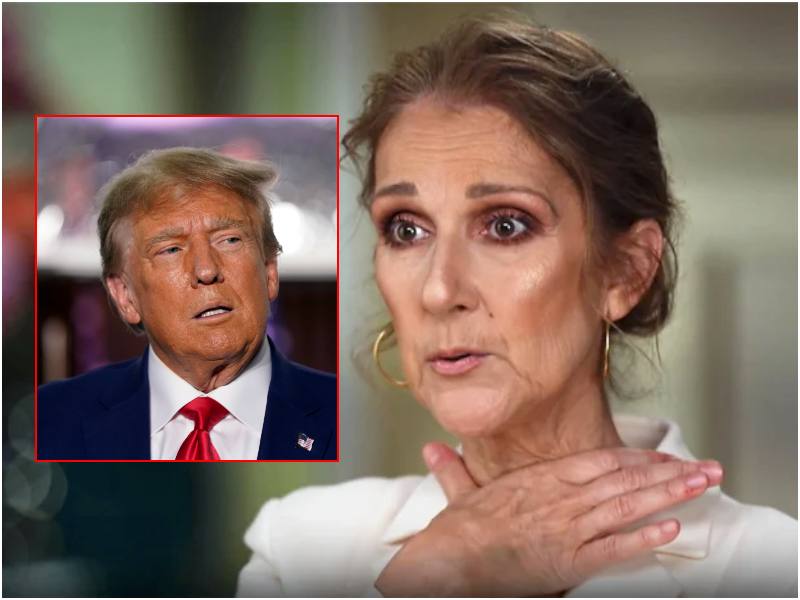In a move that highlights ongoing legal tensions between artists and political campaigns, Celine Dion is reportedly exploring legal options against former President Donald Trump and his running-mate J.D. Vance for the unauthorized use of her iconic song “My Heart Will Go On” during a rally in Montana.
The incident has sparked renewed discussion on the importance of intellectual property rights and the consequences of their infringement in political arenas.
On Friday, Dion’s management team and her record label, Sony Music Entertainment Canada Inc., issued a stern statement condemning the unauthorized use of the song, which is famously associated with the movie “Titanic.”
The statement, posted on Dion’s official X account, expressed dismay at the campaign’s actions:
“Today, Celine Dion’s management team and her record label…became aware of the unauthorized usage of the video, recording, musical performance, and likeness of Celine Dion singing ‘My Heart Will Go On’ at a Donald Trump/JD Vance campaign rally in Montana.”
The statement further clarified:
“In no way is this use authorized, and Celine Dion does not endorse this or any similar use… And really, THAT song?”
This pointed remark reflects the celebrated artist’s disapproval and sets the stage for potential legal action.
This incident is not the first time the Trump campaign has faced backlash from artists over unauthorized use of their music.
Throughout his presidential campaigns, Trump has been criticized by several high-profile musicians, including Rihanna, Axl Rose, and The Rolling Stones. In one notable case, the estate of Tom Petty condemned the campaign for using “I Won’t Back Down” in 2020 without permission. Neil Young went a step further, suing Trump for using his music without consent.
The legal landscape surrounding unauthorized use of music at political events is complex, involving issues of copyright infringement, public performance rights, and artist endorsement.
Artists and their estates have increasingly taken a stand against such practices, showing the need for campaigns to seek proper licensing and approval before using copyrighted material.
Celine Dion, who recently returned to the stage after a two-year hiatus due to her battle with Stiff-Person Syndrome, is particularly sensitive to how her work is used and perceived.
Her emotional performance of Édith Piaf’s “Hymne à l’Amour” at the 2024 Paris Olympics opening ceremony marked a significant return to public life and underscored her enduring influence as an artist.
Should Dion pursue legal action, it would serve as a reminder of the legal and ethical obligations political campaigns must observe regarding intellectual property.
The potential lawsuit could also add to the growing body of case law that defines the rights of artists in protecting their work from unauthorized use, particularly in politically charged environments.
As the legal community closely watches for developments, this case may set a precedent for how such disputes are handled in the future, reinforcing the necessity for campaigns to respect artists’ rights and adhere to intellectual property laws.

